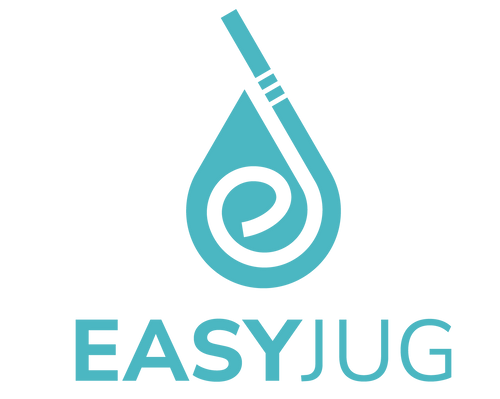Curious about how often do you go to the doctor when pregnant? Your journey through pregnancy is marked by a series of essential doctor's visits, each serving as a crucial step in ensuring the health and well-being of both you and your growing baby. From the foundational appointments of the first trimester to the preparatory visits of the third trimester, let's delve into the significance of prenatal care in guiding you through this miraculous journey.
First Trimester: Building the Foundation
During the first trimester of pregnancy, the number of doctor's visits can vary depending on individual circumstances and health care provider recommendations. However, it's common to have your first prenatal visit during the first trimester, typically around the 8th to 10th week of pregnancy.
As you embark on this sacred journey, the first prenatal appointments mark the beginning of a beautiful partnership with your healthcare professional. This first visit lays the foundation for your prenatal care and allows your healthcare team to gather essential information about your health and well-being. During this first appointment, you'll dive into discussions about your medical history, and any existing health issues. Your healthcare provider will perform a series of essential tests, including a blood test, urine samples, and even a pelvic exam to ensure a strong foundation for your pregnancy. They will also estimate your due date.

Second Trimester: Nurturing Your Growing Baby
In the second trimester, regular prenatal visits become a cornerstone of your pregnancy care, providing opportunities to track the progress of your baby's growth and ensure your own well-being. These visits typically occur every four weeks, although your healthcare provider may recommend more frequent appointments if you have a high-risk pregnancy or specific health concerns.
During each visit, your healthcare provider will conduct a series of essential monitoring procedures to assess the health of both you and your baby. This may include checking your blood pressure, monitoring your weight gain, and listening to your baby's heartbeat using a fetal Doppler device. These routine checks help ensure that your pregnancy is progressing smoothly and that any potential issues are identified and addressed promptly.
Diagnostic Tests and Screening Procedures
In addition to routine monitoring, the second trimester is also a time for certain diagnostic tests and screening procedures to be performed. These tests are designed to assess the risk of specific health conditions or birth defects and may include:
- Genetic screening tests such as the quad screen or the nuchal translucency test to assess the risk of chromosomal abnormalities like Down syndrome.
- Blood tests to determine your blood type and Rh factor, as well as to screen for conditions such as gestational diabetes.
- Ultrasound examinations to evaluate the baby's growth, anatomy, and position, as well as to detect any potential abnormalities such as neural tube defects or spina bifida.
- Chorionic villus sampling (CVS) or amniocentesis, if indicated, to diagnose genetic conditions with greater certainty.
Your healthcare provider will discuss these tests with you in detail, helping you understand their purpose, potential risks, and benefits. Together, you and your care team can make informed decisions about which tests are right for you based on your individual circumstances and preferences.
Empowering You with Knowledge and Support
Throughout your second trimester, your prenatal visits are not just about medical checks and tests – they're also about empowering you with knowledge and support. Take this opportunity to ask questions, voice any concerns you may have, and discuss your birthing preferences with your healthcare provider. Whether it's seeking advice on nutrition, managing pregnancy symptoms like morning sickness, or preparing for the arrival of your little one, your care team is here to provide guidance, reassurance, and compassionate care every step of the way.

Third Trimester: Nurturing Your Blossoming Journey
In the third trimester, you can expect to have more frequent prenatal visits as your due date approaches. These visits typically occur every two to three weeks until around 36 weeks of pregnancy, after which they may become weekly. These regular check-ins with your healthcare provider are essential for monitoring the progress of your pregnancy, assessing your overall health, and tracking your baby's growth and development.
During each visit, your healthcare provider will conduct a series of routine checks and assessments to ensure that both you and your baby are healthy and thriving. This may include:
- Checking your blood pressure to monitor for signs of preeclampsia or other pregnancy-related complications.
- Monitoring your weight gain to ensure it's within a healthy range for your stage of pregnancy.
- Test for group B streptococcus which is a bacteria that can cause severe infections.
- Listening to your baby's heartbeat using a fetal Doppler device to ensure a strong and steady rhythm.
- Discussing any changes or concerns you may have experienced since your last visit, such as changes in fetal movements or symptoms of preterm labor.
Monitoring Your Baby's Well-Being
In addition to routine checks and assessments, the third trimester is also a time for monitoring your baby's well-being more closely. Your healthcare provider may recommend additional tests or procedures, such as fetal ultrasound examinations, to assess your baby's growth, position, and overall health. These tests provide valuable insights into your baby's development and help identify any potential issues or complications that may arise.
Preparing for Labor and Delivery
As you progress through the third trimester, your prenatal visits also serve as an opportunity to prepare for labor and delivery. Your healthcare provider will discuss your birth plan preferences, answer any questions you may have about the birthing process, and provide guidance on what to expect during labor and delivery. This may include discussing pain management options, potential complications, and the importance of postpartum care. Whether it's discussing childbirth education classes, preparing for breastfeeding, or addressing any anxieties you may be feeling, your care team is here to provide compassionate care and support every step of the way.

Navigating Challenges: High-Risk Pregnancies and Complications
While the journey of pregnancy is often filled with joy and wonder, we understand that some mothers may face unique challenges and high-risk pregnancies.
Several factors can classify a pregnant woman as high risk, indicating the need for specialized care and monitoring throughout pregnancy. These factors include:
-
Advanced Maternal Age: Women who are 35 years or older at the time of delivery are considered to be of advanced maternal age and may face increased risks during pregnancy, such as gestational diabetes, high blood pressure, and chromosomal abnormalities in the baby.
-
Pre-existing Health Conditions: Pregnant women with pre-existing medical conditions such as diabetes, hypertension, thyroid disorders, autoimmune diseases, or heart disease are at higher risk for complications during pregnancy.
-
Previous Pregnancy Complications: Women who have experienced pregnancy complications in previous pregnancies, such as preterm birth, preeclampsia, gestational diabetes, or miscarriage, may be at increased risk of experiencing similar complications in subsequent pregnancies.
-
Multiple Gestation: Women carrying twins, triplets, or higher-order multiples are considered to have a high-risk pregnancy due to the increased likelihood of complications such as preterm birth, low birth weight, and gestational diabetes.
-
History of Pregnancy Loss: Women who have experienced recurrent miscarriages or stillbirths are considered to be at higher risk for complications in subsequent pregnancies and may require specialized care and monitoring.
-
Certain Lifestyle Factors: Factors such as smoking, substance abuse, obesity, or inadequate prenatal care can increase the risk of complications during pregnancy and may classify a woman as high risk.
-
Placental Issues: Conditions such as placenta previa (where the placenta partially or completely covers the cervix) or placental abruption (where the placenta separates from the uterine wall prematurely) can increase the risk of complications during pregnancy and delivery.
-
Fetal Factors: Certain fetal conditions or abnormalities detected during prenatal screening or ultrasound examinations, such as chromosomal abnormalities, congenital heart defects, or intrauterine growth restriction, may classify a pregnancy as high risk.
-
Infections: Certain infections during pregnancy, such as HIV, cytomegalovirus (CMV), or toxoplasmosis, can pose risks to both the mother and the baby and may require specialized care and management.
-
Other Factors: Other factors such as a history of preterm birth, inadequate prenatal care, or a family history of genetic conditions may also contribute to the classification of a pregnancy as high risk.
It's essential for pregnant women classified as high risk to receive comprehensive care from a healthcare provider experienced in managing high-risk pregnancies. Early identification of risk factors and proactive management can help optimize outcomes for both mother and baby.

Importance of Hydration Throughout Your Pregnancy Journey
Ensuring proper hydration is essential for maintaining a healthy pregnancy, supporting your body through childbirth, and promoting postpartum recovery. Hydration plays a crucial role in every stage of the pregnancy journey, from the early weeks of conception to the joyful moments of meeting your newborn baby.
Hydration in Pregnancy: Nurturing Your Developing Baby
From the moment of conception, your body begins the miraculous journey of nurturing a new life. Staying well-hydrated is vital during pregnancy as it supports the growth and development of your baby. Adequate hydration helps maintain the amniotic fluid levels, which cushions and protects your developing baby in the womb. It also helps regulate your body temperature, aids in digestion, and promotes healthy circulation, all of which are crucial for a thriving pregnancy.
Hydration During Childbirth: Supporting Your Body's Needs
As you approach childbirth, staying hydrated becomes even more important to support your body's needs during labor and delivery. Proper hydration can help maintain your energy levels, prevent dehydration, and promote optimal functioning of your muscles and organs during the birthing process. Additionally, staying hydrated can help regulate your blood pressure and reduce the risk of complications during labor, contributing to a smoother and more comfortable childbirth experience.
Hydration in Postpartum Recovery: Nourishing Your Body
After the joyous arrival of your little one, prioritizing hydration remains essential as your body undergoes the process of postpartum recovery. Adequate hydration supports your body's healing process, replenishes fluids lost during childbirth, and promotes milk production if you choose to breastfeed. Staying well-hydrated can also help alleviate common postpartum symptoms such as fatigue, constipation, and headaches, allowing you to focus on bonding with your newborn and adjusting to your new role as a mother.
Tips for Staying Hydrated Throughout Your Pregnancy Journey
To maintain optimal hydration during pregnancy, childbirth, and postpartum, consider the following tips:
- Drink plenty of water throughout the day, aiming for at least eight to ten glasses daily.
- Include hydrating foods in your diet, such as fruits, vegetables, and soups.
- Use a reusable water bottle like EasyJug to ensure easy access to fluids.
- Monitor the color of your urine – pale yellow or clear urine indicates adequate hydration.
- Limit caffeinated and sugary beverages, which can contribute to dehydration.
- Listen to your body's signals and drink fluids whenever you feel thirsty, especially during hot weather or physical activity.
By prioritizing hydration throughout your pregnancy journey, you're not only supporting your own health and well-being but also nurturing the precious life growing within you. Remember, staying hydrated is a simple yet powerful way to promote a healthy pregnancy, a positive childbirth experience, and a smooth transition into motherhood.
Community and Connection: Building a Village of Support
As you navigate the joys and challenges of pregnancy, remember that you are never alone. At EasyJug, we're passionate about fostering a community of support and connection among mothers. Whether you're seeking advice on prenatal vitamins or sharing the excitement of feeling your baby's first movements, our nurturing community is here to lift you up and celebrate every milestone along the way.
Conclusion
Your journey through pregnancy is not just a series of doctor's visits but a transformative experience marked by growth, anticipation, and love. From the foundational appointments of the first trimester to the preparatory visits of the third trimester, each step of your prenatal care plays a crucial role in ensuring the health and well-being of both you and your growing baby. As you navigate this miraculous journey, remember the importance of staying hydrated – not just for yourself but for the precious life blossoming within you. With EasyJug as your trusted companion, hydration becomes effortless, convenient, and supportive, empowering you to embrace every moment of motherhood with confidence and joy. Together, let's nurture the miracle of life within and cherish the extraordinary journey of pregnancy and beyond.
Community & Support
We know the beautiful chaos of motherhood – the endless feedings, diaper changes, and sleepless nights. Amidst all this love and care, it's easy to forget about your own well-being. That's where EasyJug steps in – to make hydration a breeze for you.
Join our community of nurturing mothers and prioritize your health with EasyJug. Sign up now to receive exclusive tips on staying hydrated during your breastfeeding journey, along with special offers just for you.
Because when you take care of yourself, you can give your little one the best version of you. Let's hydrate together and thrive as moms!




